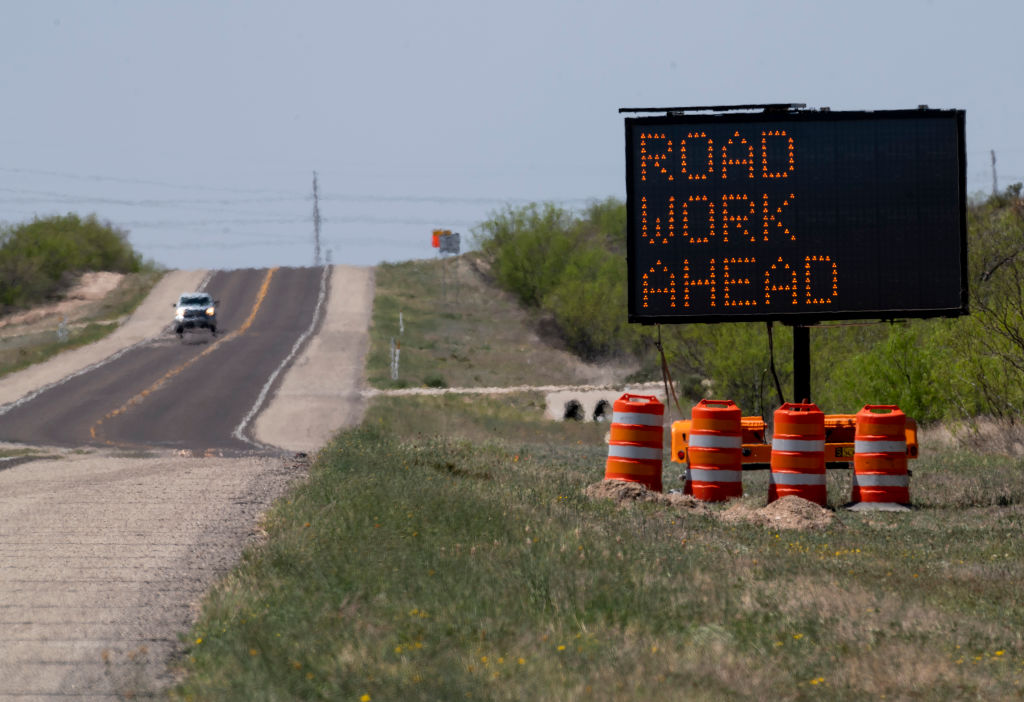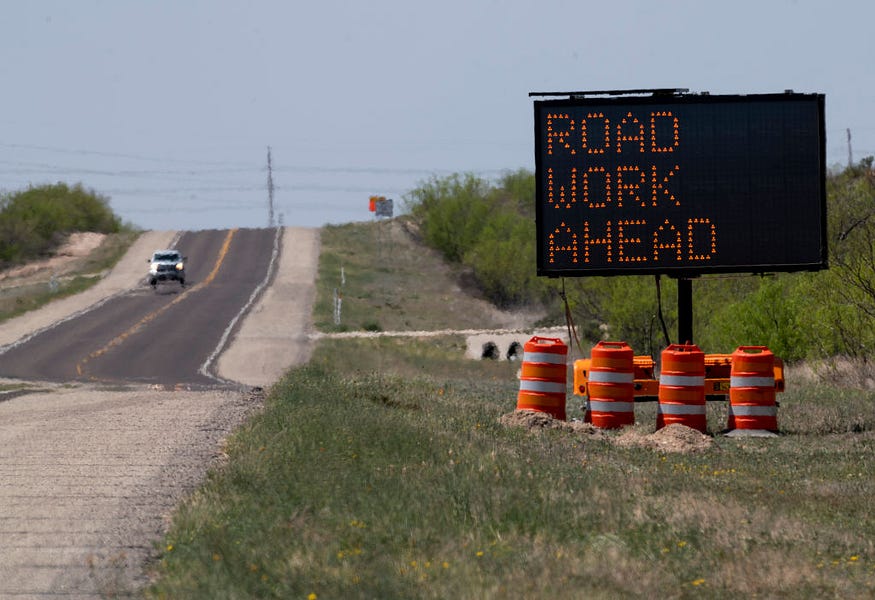Happy Tuesday! Congratulations to this cat, who scrambled onto the field at Yankee Stadium Monday night and managed to successfully evade security for nearly five minutes.
Reminds us of certain lawmakers on the Hill we’ve tried to question.
Quick Hits: Today’s Top Stories
-
The State Department announced Monday that—“in light of increased levels of Taliban violence”—it is expanding access to the United States’ Afghan refugee program to many of those who do not currently hold a special immigrant visa, including Afghans employed by a U.S.-based media company or non-governmental organization.
-
One month after the initial July 4th target date set by the White House, 70 percent of eligible adults in the United States have received at least one dose of the COVID-19 vaccine.
-
Washington’s Metropolitan Police Department confirmed Monday that officers Kyle DeFreytag and Gunther Hashida in recent weeks became the third and fourth law enforcement officers who responded to the January 6 attack on the Capitol to have died by suicide.
-
Belarusian Olympic sprinter Krystina Timanovskaya was granted a humanitarian visa from Poland yesterday after she refused to return to her home country out of fear she would face retribution for her comments criticizing her Olympics coaches.
-
Sen. Lindsey Graham announced yesterday that he has tested positive for COVID-19. Graham, who is vaccinated, said he was grateful he’d gotten his shots. “I am very glad I was vaccinated because without vaccination I am certain I would not feel as well as I do now,” he said. “My symptoms would be far worse.” Graham was with a bipartisan group of lawmakers on Sen. Joe Manchin’s houseboat over the weekend, but none of his peers has yet tested positive.
Senators Introduce Infrastructure Bill

After weeks of negotiations and a rare weekend session, a bipartisan group of senators finally unveiled the Infrastructure Investment and Jobs Act Monday night. The legislation—more than 2,700 pages long—represents the best chance in years for Congress to pass a comprehensive infrastructure bill that provides funding for everything from roads and bridges to high-speed internet. But the bill’s passage is still not guaranteed.
Senate Majority Leader Chuck Schumer said he wanted a vote on the infrastructure bill soon. “Given how bipartisan the bill is and how much work has already been put in to get the details right, I believe the Senate can quickly process relevant amendments and pass this bill in a matter of days,” he said.
Last week, 17 Republicans—including Senate Minority Leader Mitch McConnell—joined with Democrats to advance the infrastructure bill in a procedural vote, indicating that the legislation may have enough bipartisan support to clear the 60-vote threshold needed to overcome a filibuster in an evenly divided Senate.
Sen. Susan Collins, one of the Republican architects of the bill, told CNN’s State of the Union earlier this week that she expects it to receive at least 10 Republican votes. “Every senator can look at bridges and roads … and see the very concrete benefits, no pun intended, of this legislation,” she said. “I believe it will pass.”
As we reported last month, however, Democrats also hope to pass a separate $3.5 trillion spending bill using reconciliation—something that has complicated the infrastructure negotiations from the beginning. Some Republicans, including Sen. Ted Cruz, have voiced opposition to the bipartisan package, suggesting Democrats merely plan to use it as a “down payment” on their other plan. Progressives, meanwhile, fear that if the Senate passes the infrastructure bill, it will undermine support among moderate Democrats for passing the more ambitious reconciliation package.
“I respect that we have to get Sen. Sinema and Manchin’s vote on reconciliation,” Rep. Alexandria Ocasio-Cortez said yesterday. “They should also respect that there’s a very tight House margin, and that we have to be able to uphold our end of the bargain as well. And House progressives are also part of that majority.”
House Speaker Nancy Pelosi has repeatedly promised she won’t take up the bipartisan infrastructure deal without the reconciliation package, but that threat hasn’t changed the political calculus for Republican sponsors of the infrastructure bill.
“I know members of both parties have mischaracterized our efforts as somehow linked to paving the way to the Democrats’ $3.5 trillion wish list,” Sen. Mitt Romney told Politico. “If you don’t think our Democrat friends are going to push for that monstrosity with or without this bill then I have a bridge in Brooklyn to sell you. They’re going to push for that anyway.”
Philip Wallach, a policy expert at the American Enterprise Institute, told The Dispatch that the infrastructure bill is very likely to become law.
“The majority leader wants to see the bill pass, the minority leader wants to see the bill pass, the president wants to see the bill pass, and [67] senators voted in favor of moving the bill forward, clearly with the expectation that it would then pass,” he said. “So I would say the chances of it passing are very good—and, at this point, if it doesn’t pass, it’s going to be hugely embarrassing for everyone involved.”
Technically, the bill text was offered by the 10 bipartisan negotiators as an “amendment in the nature of a substitute,” striking all but the enacting clause of the House’s INVEST in America Act and replacing it with 2,700 pages of new material.
So what’s in the bill?
The first thing to note is that it provides for $550 billion in new spending over five years, on top of “baseline” spending that would have happened anyway. Much of that baseline spending, including the authorization of spending for the Highway Trust Fund, is also part of the bill. Bills passed on a routine bipartisan basis through the relevant Senate committees, including Environment and Public Works, Commerce, and Energy, were folded into one big package over the course of the bipartisan negotiations, bringing the overall price tag to about $1 trillion.
“The way you get bipartisanship on policy is by making evolutionary changes, not revolutionary changes,” Jeff Davis, a senior fellow with the Eno Center for Transportation, told The Dispatch. “When the Senate wants to get a bipartisan bill out of committee, it generally doesn’t make a lot of changes to what has gone before.”
Still, $550 billion in new spending is nothing to sneeze at, and the claims that this spending is “historic”—and massive—are not hyperbolic.
Davis pointed out that the $66 billion in Federal Railroad Administration appropriations to be doled out over five years is roughly equal to the amount of money appropriated to the agency over the previous 18 years. One priority area is Amtrak’s northeast corridor, which still relies on tunnels and bridges that in some instances are more than 100 years old.
The bill offers funding for many different hard infrastructure projects, including: $25 billion for the Federal Aviation Administration to modernize runways and airports, $65 billion for broadband internet access, more than $70 billion for updates to the country’s power grid, nearly $40 billion for transit systems, $55 billion for water infrastructure (which would include addressing lead pipes), and many other projects.
Andy Winkler, an associate director for housing and infrastructure projects at the Bipartisan Policy Center, told The Dispatch the new spending “should be able to address some long-standing issues with deferred maintenance, for example, and it makes some commitments to sort of newer and cleaner energy and infrastructure systems. … I do think it represents a pretty historic investment in addressing climate change.”
The bipartisan group found it easier to agree on some aspects of Biden’s agenda than others. By Davis’ count, the White House got 82 percent of the funding it wanted for roads and bridges, 36 percent for non-highway transit, and only 4 percent for reconnecting communities separated by existing highways.
The bipartisan bill also contains several policy changes that likely wouldn’t have been made through the reconciliation process, such as provisions supporting public-private partnerships.
“It’s a really positive thing that they were able to advance it on a bipartisan basis,” Winkler said. “It’s a good sign. That’s how things are supposed to work, but … it’s far from over.”
Biden Expands Afghanistan Refugee Program
On Friday, the first evacuation flight from Afghanistan brought 221 Afghans under threat by the Taliban to Dulles International Airport. The refugees—at heightened risk in their home country for aiding American troops and personnel—are among the hundreds of thousands of Afghans hoping to rebuild their lives abroad as the Kabul government’s territorial holdings collapse.
The Biden administration announced plans to extend that opportunity to “thousands” more Monday, establishing the “Priority 2” refugee designation for Afghans who don’t qualify for the special immigrant visa (SIV) program. New categories of American-affiliated refugees, including current and former journalists and non-governmental organization workers, will become eligible to resettle in the U.S. through a referral process initiated by their employers.
But unlike the SIV program, the new designation offers no mechanisms to aid in its recipients’ relocation—a glaring defect given the requirement that all applicants be outside Afghanistan to begin processing. From there, refugees must reside in the third country for 12 to 14 months while their referral is considered. As the Taliban absorbs districts across the country, in some cases cutting off access to airports, options to flee are running out for the thousands of interpreters, translators, drivers, and others who worked with the U.S. to combat the insurgents.
“Right now the situation is really bad for the Afghan government. The Taliban has made significant gains since it launched its offensive after President Biden announced the withdrawal on April 14,” Bill Roggio, senior fellow at the Foundation for the Defense of Democracies and editor of its Long War Journal, told The Dispatch. “The Taliban took control over 160 districts and is now directly contesting control of 17 of Afghanistan’s 34 provincial capitals, and in three of those capitals the situation is dire.”
Kandahar, Herat, and Lashkar Gah—respectively the second, third, and 10th most populous cities in Afghanistan—teetered on the edge of becoming the first provincial capitals to fall entirely under Taliban control over the weekend. U.S. forces have offered limited assistance to the government by way of airstrikes and tactical support, but as the Taliban brings the fight to cities, the heightened risk of civilian casualties deters aerial operations. As the jihadists win territory, regular Afghans once again face atrocities including gender-based violence, torture, and politically motivated assassinations.
On Monday, the U.S. and British embassies in Kabul issued joint statements accusing the Taliban of possible war crimes in its occupied territories. “In Spin Boldak, Kandahar, the Taliban massacred dozens of civilians in revenge killings. These murders could constitute war crimes; they must be investigated & those Taliban fighters or commanders responsible held accountable,” the U.S. Embassy posted to Twitter. “The Taliban’s leadership must be held responsible for the crimes of their fighters. If you cannot control your fighters now, you have no business in governance later,” the statement said, expressing sentiments that skeptics of peace negotiations with the jihadists have been making for years.
The administration has long asserted that it won’t engage a government in Afghanistan established by force—State Department spokesman Ned Price said as much in his briefing Monday—but most experts agree that the Taliban puts little weight in Western partners. Russia, China, and Iran have each indicated their willingness to work with the militia’s leadership in an alarming sign of what’s to come, acting on the diplomatic opening created when former President Donald Trump struck a deal with the insurgent group in February 2020.
Despite the Taliban’s blatant violations of the text of that agreement (it continues to not only harbor but also strengthen ties with al-Qaeda leadership), the Biden team has also placed its faith in the intra-Afghan talks unfolding in Doha, Qatar. But most analysts regard the Taliban’s engagement in negotiations as a stalling tactic to placate the international community as its fighters sweep the country.
“The Taliban are fighting to control Afghanistan,” Roggio said. “The talks are just a ruse designed to give the Taliban political legitimacy.”
Worth Your Time
-
Andrew McCarthy’s latest piece for National Review analyzes Democrats’ recent failure to extend the eviction moratorium, placing the spat within the proper context regarding constitutionality and the separation of powers. Supreme Court Justice Brett Kavanaugh voted last month against scrapping the ban—which he argued “exceeded [the CDC’s] existing statutory authority”—in an effort to be less disruptive and allow for the “orderly distribution of the congressionally appropriated rental assistance funds.” So what did Congress get done on the issue over the past few weeks? “Nothing, that’s what,” McCarthy writes. “Democratic leaders used the time to ratchet up pressure on the Biden administration to extend a lawless measure and to sharpen rhetoric that they hoped would extort the justices into, yet again, looking the other way. Speaker Pelosi and Senate majority leader Chuck Schumer did not push a legislative fix because they didn’t have the votes.”
-
You don’t want to miss Alec MacGillis’ most recent piece for ProPublica, focusing on Philadelphia as a lens through which to view the rising homicide rate in many American cities. The trend’s causes are multifaceted. “The coronavirus pandemic, and the decisions that officials made in response to it, had the effect of undoing or freezing countless public and social services that are believed to have a preventative effect on violence. Removing them, almost simultaneously, created a sort of unintended stress test, revealing how essential they are to preserving social order,” he writes. “The effect of this withdrawal was layered atop other contributing factors, such as criminal justice reforms in Philadelphia and other cities, and further deterioration of police-community relations in the wake of more high-profile deaths at police hands.”
-
Washington Post White House reporter Seung Min Kim published a deeply reported piece over the weekend detailing exactly how the bipartisan infrastructure deal came together and the extent of President Biden’s involvement in the process. “As soon as the agreement came together, it almost fell apart. Biden, speaking triumphantly to reporters hours after announcing the deal, said he would not sign it unless it was accompanied by a separate package that encompassed only Democratic priorities,” Kim recounts. “[Sen. Susan] Collins saw a news alert about Biden’s comments—effectively a veto threat against his own deal—flash across her phone as she waited at Reagan National Airport for a late-night flight to Maine. Before boarding, Collins called [presidential adviser Stephen] Ricchetti, who promptly answered. ‘I remember I was so shocked because that was completely contrary to what we had explicitly talked about in the Oval Office and then at the press conference right afterwards,’ Collins said. Early the next day, Ricchetti called Collins back, telling her he was working on getting the agreement with Republicans back on track. Biden was also working the phones, calling Portman and asking what he should say to reassure GOP senators, according to a Republican close to the talks. The president ultimately issued a lengthy statement backtracking on his comments.”
Presented Without Comment
Also Presented Without Comment
Toeing the Company Line
-
On Monday’s Advisory Opinions, David and Sarah kicked off their August series of non-law topics with Avi Loeb, an astrophysics professor at Harvard University. Loeb—who thinks it might just be possible that aliens have visited Earth—talks about the first known interstellar object that’s passed through our Solar System, the recently released UFO report from the Office of National Intelligence, and why science is like a fishing expedition where you throw out a hook and see what happens.
-
What could fix, or at least ease, our current political ills? Some have suggested a new centrist party, Thomas Koenig realizes the inherent problem with that idea and recommends a new faction: the Truth Seekers. “They can continue to vote differently, disagree on tax rates, and diverge on the morality of abortion, but they can and should openly acknowledge that they share an epistemological framework. That is, they both hold the simple yet profound assumption that in politics, truth matters,” he writes.
Let Us Know
Does the bipartisan infrastructure bill pass? Would you support it if you were in the Senate?
Reporting by Declan Garvey (@declanpgarvey), Andrew Egger (@EggerDC), Charlotte Lawson (@charlotteUVA), Ryan Brown (@RyanP_Brown), Harvest Prude (@HarvestPrude), Tripp Grebe (@tripper_grebe), Emma Rogers (@emw_96), Price St. Clair (@PriceStClair1), Jonathan Chew (@JonathanChew19), and Steve Hayes (@stephenfhayes).







Please note that we at The Dispatch hold ourselves, our work, and our commenters to a higher standard than other places on the internet. We welcome comments that foster genuine debate or discussion—including comments critical of us or our work—but responses that include ad hominem attacks on fellow Dispatch members or are intended to stoke fear and anger may be moderated.
With your membership, you only have the ability to comment on The Morning Dispatch articles. Consider upgrading to join the conversation everywhere.